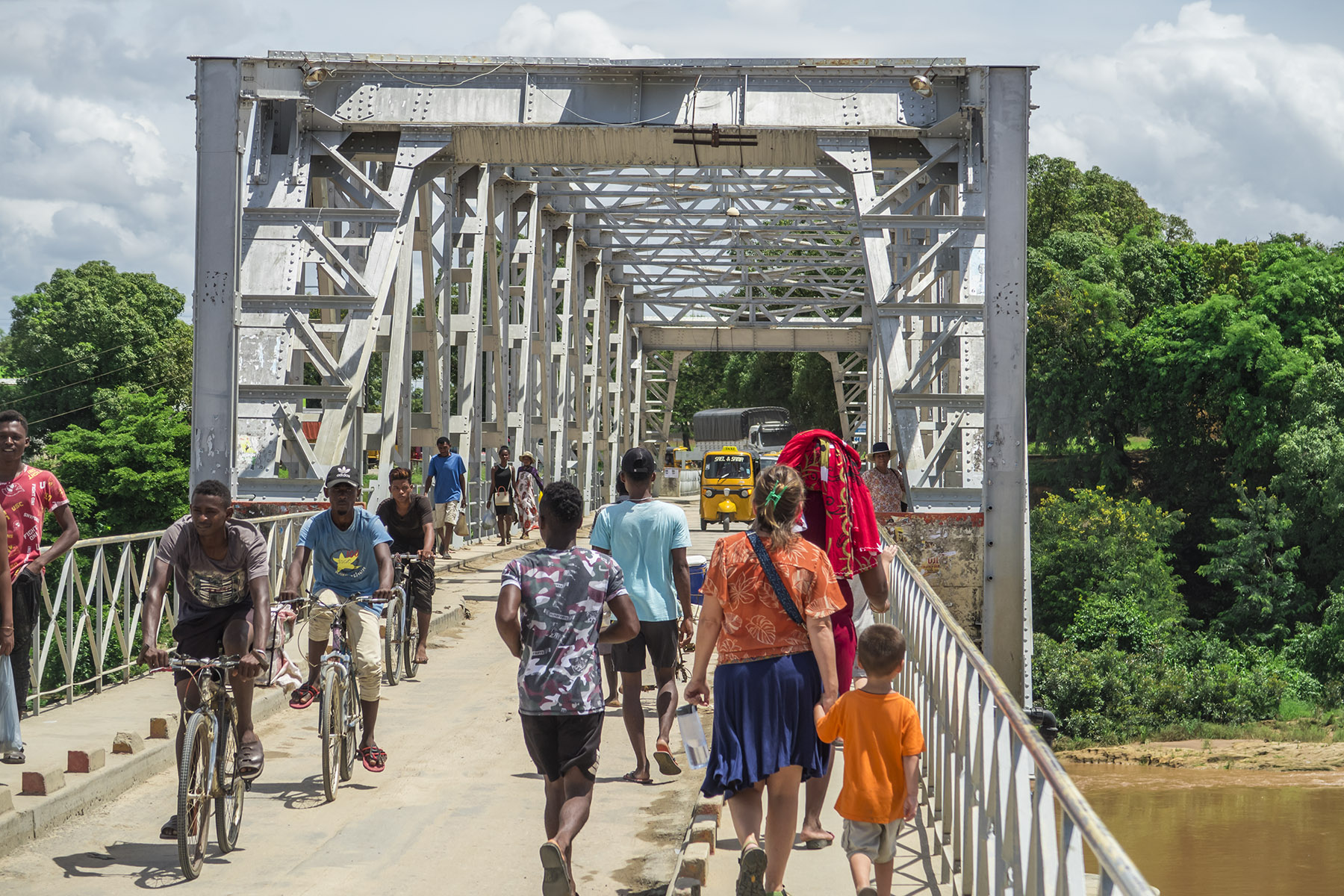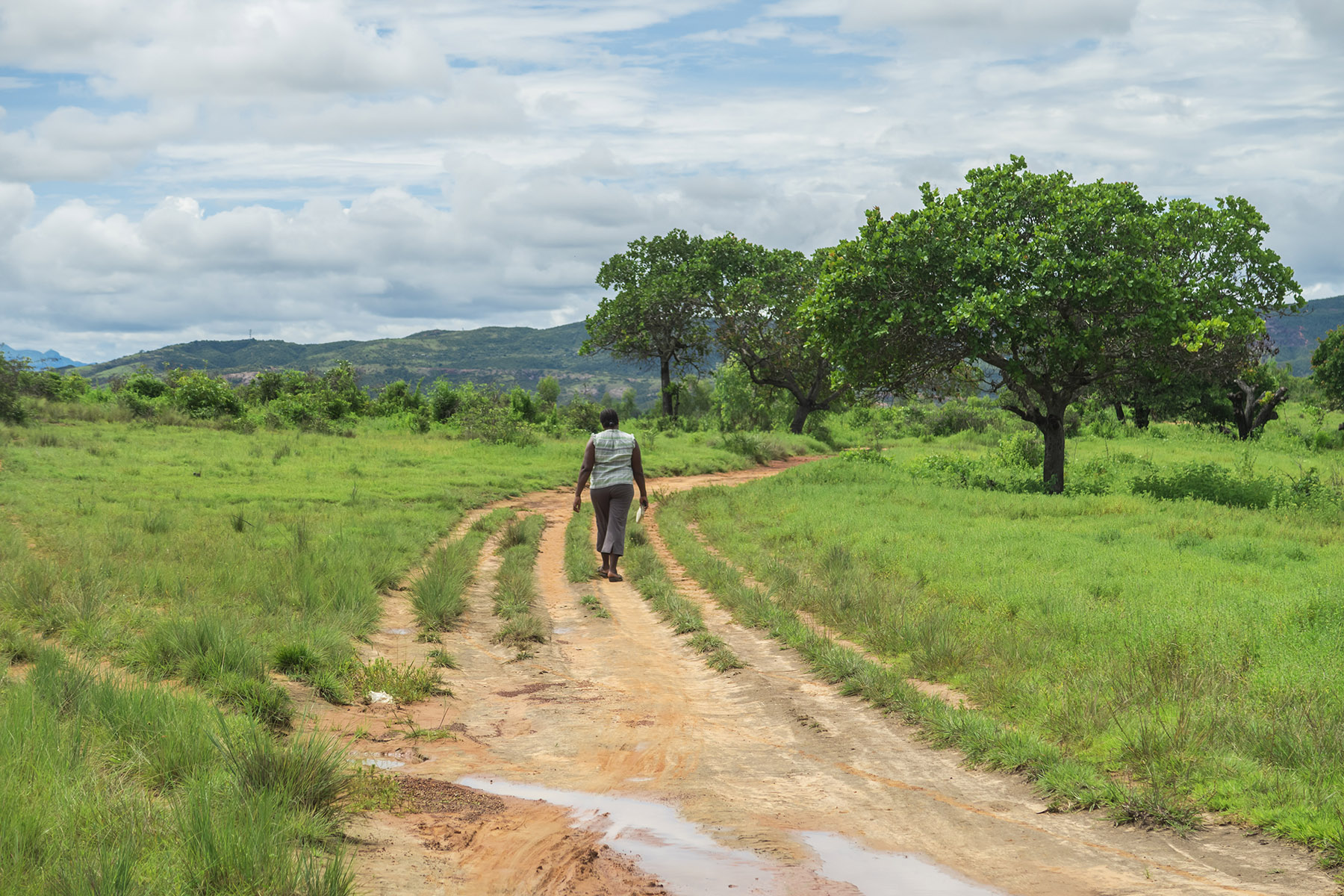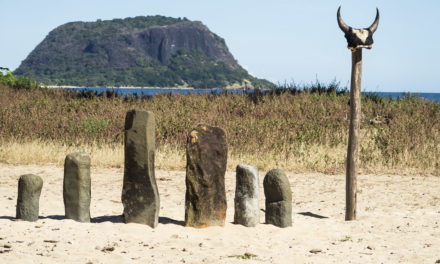We’re used to being busy. It’s a state of being for most. There’s always something to do and to accomplish in life. We live in a busy fast-paced world where many are on the move in some way, often intersecting with one another only for brief moments during pauses between work. Work helps us live. Yet life has a way of deceiving us, of distracting us, of giving us confidence in our routines, and even in ourselves, in the efforts we make.

All it took were those brief intersecting moments in busy lives for COVID-19 to travel to every corner of our world and bring it all to a halt. Our daily life has been disrupted and our routines have crumbled. Work for many has stopped completely. Economies are suffering and numerous lives are still being lost. Many find themselves sitting at home helpless, confidence shattered, not knowing how life will carry on. Life has been shaken and shifted. It’s frustrating and it’s painful. This is out of our control.
Here in Madagascar, we were about to make two new big steps in ministry the very week that the first cases of COVID-19 were found in country. Then it all came to a standstill as strong preventative measures were enacted by the government. These uncertainties in our work here are not unusual for us, yet it’s the ambiguity of it all that continue to cause me my greatest struggles. I have a deep desire to feel like I’ve accomplished something, to see the results and know that I’ve done good work.
Even under “normal” circumstances, our work of bringing the Good News to a people who haven’t yet heard is not straightforward. We don’t clock-in hours, fulfill assigned tasks, and receive our wages. We know the goal in front of us, but finding a way to get there with the resources we have available is far less obvious. There are hundreds of thousands of Antakarana, the task seems impossible, and all I ever see is my own lack.
It reminds me of the day when Jesus saw an immense crowd coming toward him, at least 5,000 men.
Like Philip, we calculate. We wonder, “What can we do to meet this need? How can we logically fix this problem?“ The reality is, there’s no solution that’s sufficient with what we have on hand. There will never be enough money and resources – the need is too vast. Our hard work and clever planning will never be enough.

“Then Andrew spoke up, ‘I met a young boy in the crowd carrying five barley loaves and two fish, but that is practically useless in feeding a crowd this large.’” What they had was just enough to feed a few, from the poor offering of a small boy. To even mention such a meager amount of food for a crowd so immense seems utterly absurd and possibly even shameful.
Yet, Jesus was not frustrated. He didn’t ask why the people hadn’t come better prepared. Instead, “Jesus picked up the bread, gave thanks to God, and passed it to everyone. He repeated it again with the fish. Men, women, and children all ate until their hearts were content.”
A small boy’s five loaves and two fish, useless to a crowd that size, fed everyone until they were well-satisfied. With this pitiful amount of food, Jesus took it and gave God thanks.
My whole life I’ve always overlooked this part of the story. Jesus takes what little we have, and with thankfulness he offers it up to the service of his work – no matter how useless and absurd it may seem to the God of the universe. We are meant to thank him for the puny morsels we have and offer them to him. Jesus was modeling what he expects from us.
I confess this is not my normal way of responding. I look upon all my lack with disgust and disdain, often believing I have nothing to offer in his Kingdom work. But even if it seems that all I have is an empty basket, I must give it to him with a thankful heart for what only he can do with it: the impossible. No matter how much effort and time I invest into his service, no matter how many skills and giftings I bring, no matter how much I try to accomplish for him and his Kingdom, it will never be enough. And that’s exactly what I should be thankful for. Only he can complete his work. To him alone belongs the glory.

There are great needs among us, especially now. There is so much understandable anxiety, both for our personal health and especially for our vulnerable loved ones. Hundreds of thousands of people whom God loves are dying from this disease, thousands more every day. There is very little any one of us can do to stop this thing. Our own individual efforts are not enough, just like the small boy with his meager offerings. But in thankfulness, we each offer what little we have to God, that he might use it to sustain our lives and those around us.
If there’s worry over finances and job security, over where your next meal will come from, in thankfulness, give what little you have back to God. He will provide beyond what you expect and teach you something in the process. It was always his to begin with anyway. Perhaps your little, which looks like not even enough for you and your family, will be used by God to bless many others.
If there’s worry over the state of your local church, thank God even for the current circumstances and give it into his hands. He does not depend on your efforts and programs to keep the church alive. He alone will grow the Church in spite of any man-made restrictions. History shows us that the Church grew the most when it was restricted the most – God’s work can not be stopped.
Whether it’s health, relationships, politics, finances, or a world pandemic, the list of needs is never-ending. We are not and have never been in control of any of it. Our solutions and efforts, our abilities and resources, are never sufficient. Instead, we recognize the lordship of Jesus in all that we have and all that we do. Humbled and with thankful hearts, we approach him with the little we have, even if just an empty basket. We expect him and him alone to sustain, to fill, and to multiply his work throughout the world. For what he does, he does not only for you, but for everyone around you. And that’s truly something to be thankful for.





